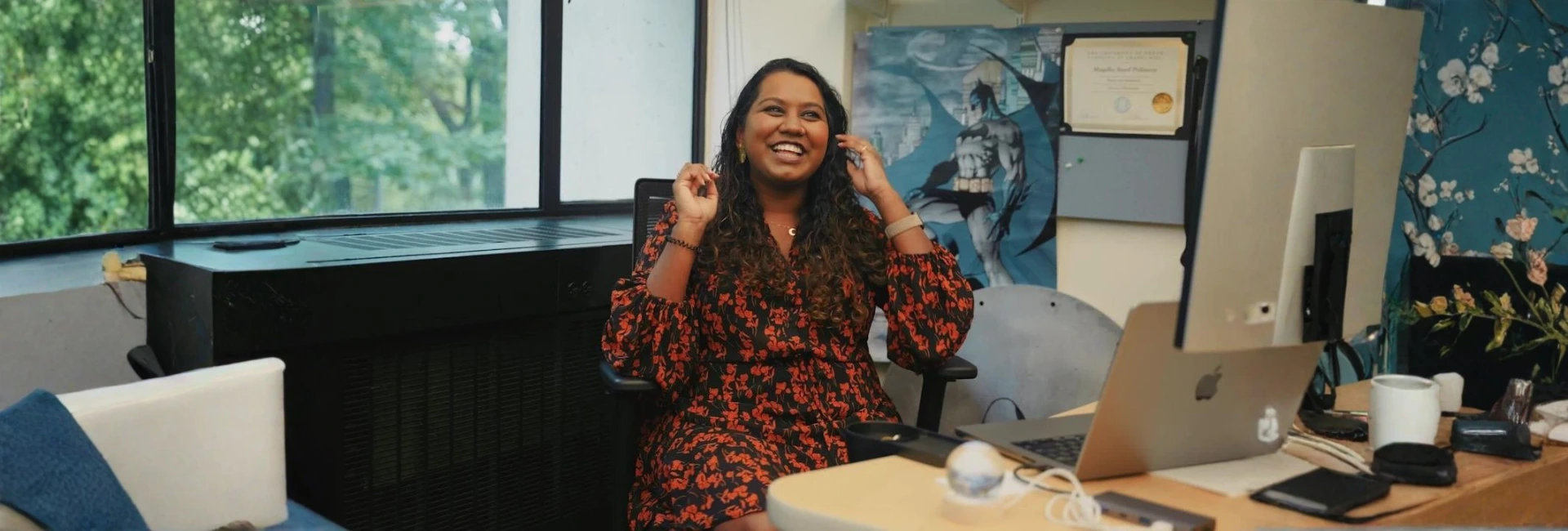(November 3, 2025) At the 2023 American Astronomical Society (AAS) winter meeting in Seattle, Mugdha Polimera stopped by the Astrophysics Data System (ADS) booth to chat about new features. She didn’t know then that the casual conversation would lead her to a new role at the Harvard–Smithsonian Center for Astrophysics in Cambridge, Massachusetts, where she now works as an astrophysicist, scientific programmer and AI/ML researcher.
One conversation led to another, and soon Mugdha was deep in discussion with one of her now-supervisors about data pipelines, metadata, and how she had built similar systems during her research. That chance meeting set her on a new trajectory and she joined the very team behind ADS and NASA’s next-generation Science Explorer platform.
“Initially, I thought I wasn’t qualified. The job description sounded very software-heavy but the team encouraged me to apply anyway. A few months later, I had an offer in hand,” smiles Mugdha in a chat with Global Indian.
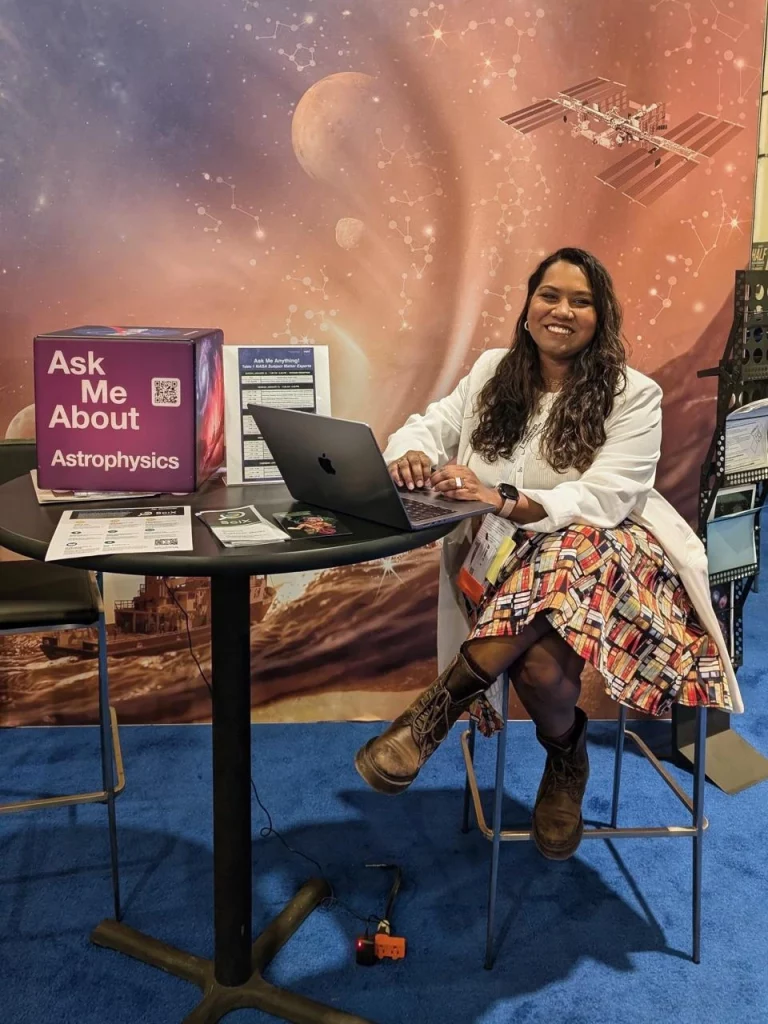
Powering the backbone of astronomy
Every astronomer knows ADS as the place where research begins—the trusted database where millions of researchers find papers, datasets, and software linked to nearly every discovery in astrophysics. “I used it for eight years, so joining the team behind it felt like coming full circle,” she says.
ADS was the very first research tool she learned to use after moving to the U.S. in 2015 to start her master’s in astronomy at the University of Florida. Today, she helps build the backend pipelines that power ADS and its successor, NASA Science Explorer (SciX). Her role sits at the intersection of astrophysics, software engineering, and data science.
“Essentially, we receive raw data from publishers—everything from research papers to citations, software links, and datasets. My job is to help transform that messy information into structured, searchable knowledge that scientists can actually use,” she explains, calling it part data wrangling, part software design, and part detective work.
Designing smarter algorithms
“Different publishers format their data differently, so a big part of my job is designing new translation rules and metadata pipelines to make everything uniform and discoverable,” says Mugdha, who received the Teaching Award from the University of North Carolina’s Department of Physics & Astronomy.
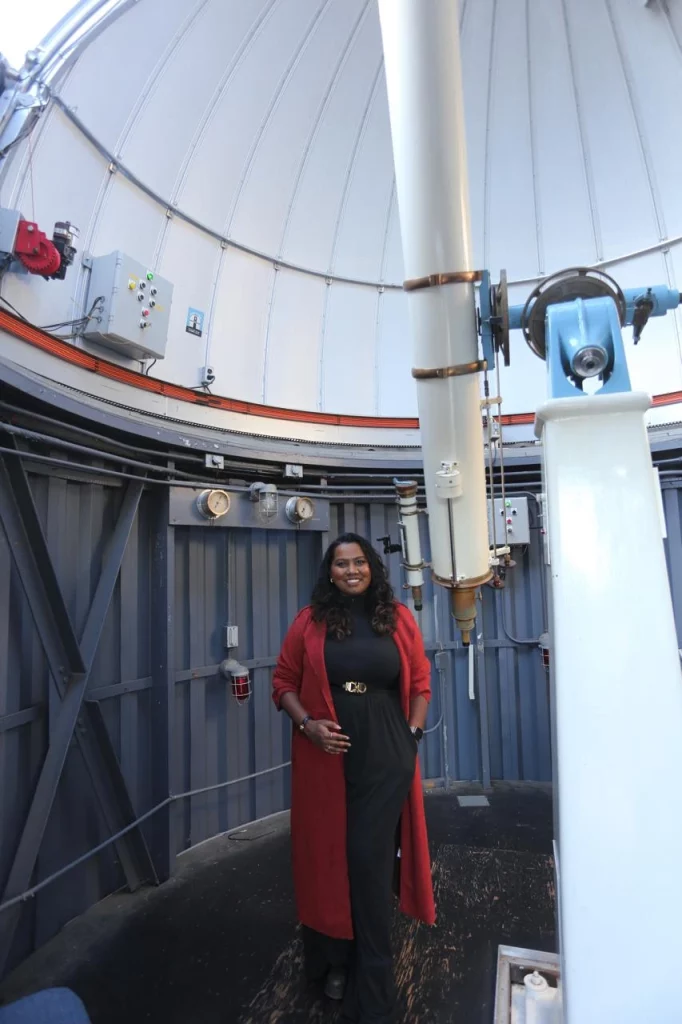
She recently designed an end-to-end pipeline to improve search relevance—teaching the system how to understand context so that an Earth scientist searching for “dust emission” doesn’t get the same results as an astrophysicist. “That involves algorithm design, technical architecture, database planning, and a lot of creative problem-solving.”
Expanding horizons with science explorer
One of her major projects focuses on improving search relevance across disciplines. Traditionally, ADS served astronomers, but with Science Explorer, her team is expanding to include all of Earth and space sciences—climate research, planetary science, heliophysics, environmental studies, volcanology, and glaciers.
Her team of 25 people means everyone wears multiple hats. “The biggest challenge has been working on production-grade software without having a formal computer-science degree,” she admits. “I had to learn a lot on the fly about scaling, deployment, and systems design—but my engineering background helped.”
Beyond coding
Dr Mugdha’s role extends far beyond programming. She gives talks at conferences, co-leads the Science Explorer Ambassador Program which builds partnerships with scientists worldwide and helps write proposals and papers. She also works on AI/ML experiments to test whether language-model approaches can outperform traditional text-search methods, while occasionally dipping into branding and outreach projects like designing new website features. “I also help the team shape product strategy and long-term vision thinking about how we can spin off successful pilot features into full-scale products that make science faster, more connected, and more transparent.”
Her days follow three-week sprint cycles. “I cycle to work after my two dogs see me off, grab a coffee, and plan my weekly sub-tasks—anything from fixing pipeline issues to testing a new AI model or preparing slides for a talk,” she says.
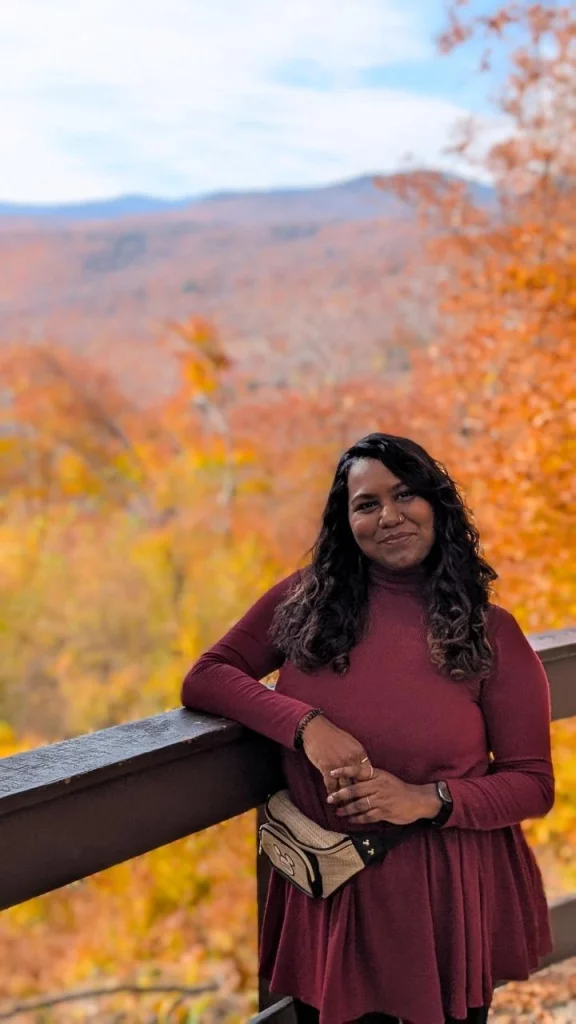
Rooted in many worlds
Born in Bangarpet, Karnataka, Dr Mugdha was raised in the United Arab Emirates, between Abu Dhabi and Dubai. Her father’s family hails from Hyderabad, and her upbringing blends Telugu warmth, Kannada roots, and UAE cosmopolitanism. “I was ten when I decided I wanted to become an astrophysicist without fully understanding what it meant,” she says.
In Abu Dhabi, she attended St. Joseph’s and later Sunrise English Private School, choosing the CBSE curriculum so she could study computer science. “I loved learning how things worked beneath the surface, whether it was a radio circuit or a line of code. “Living in such an international city taught me how to respect, understand, and blend cultures while still holding on to my own roots,” she reflects. She learned Carnatic music, joined Bhagavad Gita chanting contests, and grew up speaking bits of half a dozen Indian languages besides Arabic.
Engineering foundations
From 2011 to 2015, she completed her B.E. in Electronics and Communication Engineering at BITS Pilani – Dubai Campus, earning a merit scholarship every semester. At BITS, she joined the editorial board, wrote short stories and science columns, organized student events, and even helped friends debug projects at 2 a.m. But the turning point came when she discovered a passion for teaching. “It started small with helping friends before exams and by fourth year I was giving full-blown lecture-style sessions in empty classrooms. At one point, my classes were better attended than the official ones!”
From BITS to Black Holes
After BITS, Dr Mugdha moved to the U.S. for her M.S. in Astronomy at the University of Florida, where “physics, math, and coding came together under one sky.” She then pursued her Ph.D. in Astrophysics at the University of North Carolina at Chapel Hill, focusing on hidden black holes in dwarf galaxies. “It’s here that I worked on the RESOLVE and ECO galaxy surveys studying about 15,000 nearby galaxies to create a census of active black holes,” says Dr Mugdha, who received the Andrew & Kathrine McMillan Fellowship for her doctoral research.
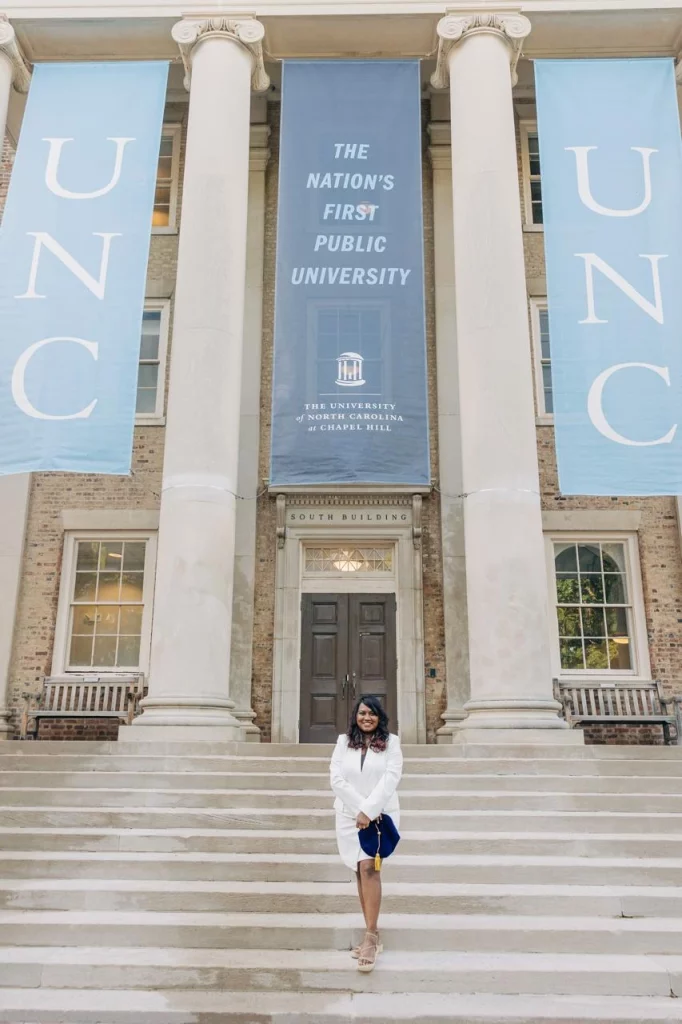
Her discoveries on hidden black holes reshaped theoretical models of galaxy evolution. “It’s basically how the smallest galaxies and black holes grow into the supermassive ones we see today,” she explains. Her work was honored by the American Astronomical Society’s Chambliss Awards Committee.
Building the Future of Science
Dr Mugdha and her team recently launched the NASA-funded Science Explorer platform—the next generation of ADS. Her focus now is refining it: designing smarter pipelines, developing AI-powered search tools, and helping shape its strategic roadmap. She’s also looking forward to doing community events, talks, and workshops in India to connect with students and researchers. Beyond that, she serves on the executive board of Universe TBD, an international collaboration of astronomers experimenting with AI and data-science techniques in astrophysics, where she advocates democratizing access to research tools and data globally.
Beyond the lab
Travel is how she refuels her creativity. “My goal is to visit every continent. I’ve covered most, but still have South America, Australia, and Antarctica left,” she says. She loves cooking, experimenting with cross-cultural flavors, and hosting friends. Back in North Carolina, she volunteered with Eyes, Ears, Nose, and Paws, helping raise and train service dogs.
Brand India: From following to leading
Dr Mugdha believes it’s an exciting time to watch India step into a new era of scientific and technological confidence. “What stands out to me most is how the mindset has shifted from following to leading, from catching up to setting the pace,” she says, citing the success of Chandrayaan-3, Aditya-L1, and indigenous technologies like the Vikram microprocessor. “India has no shortage of bright minds, and the more opportunities there are for them to work on ambitious, globally relevant projects, the more unstoppable the country becomes,” she signs off.
- Follow Dr Mugdha Polimera on LinkedIn
